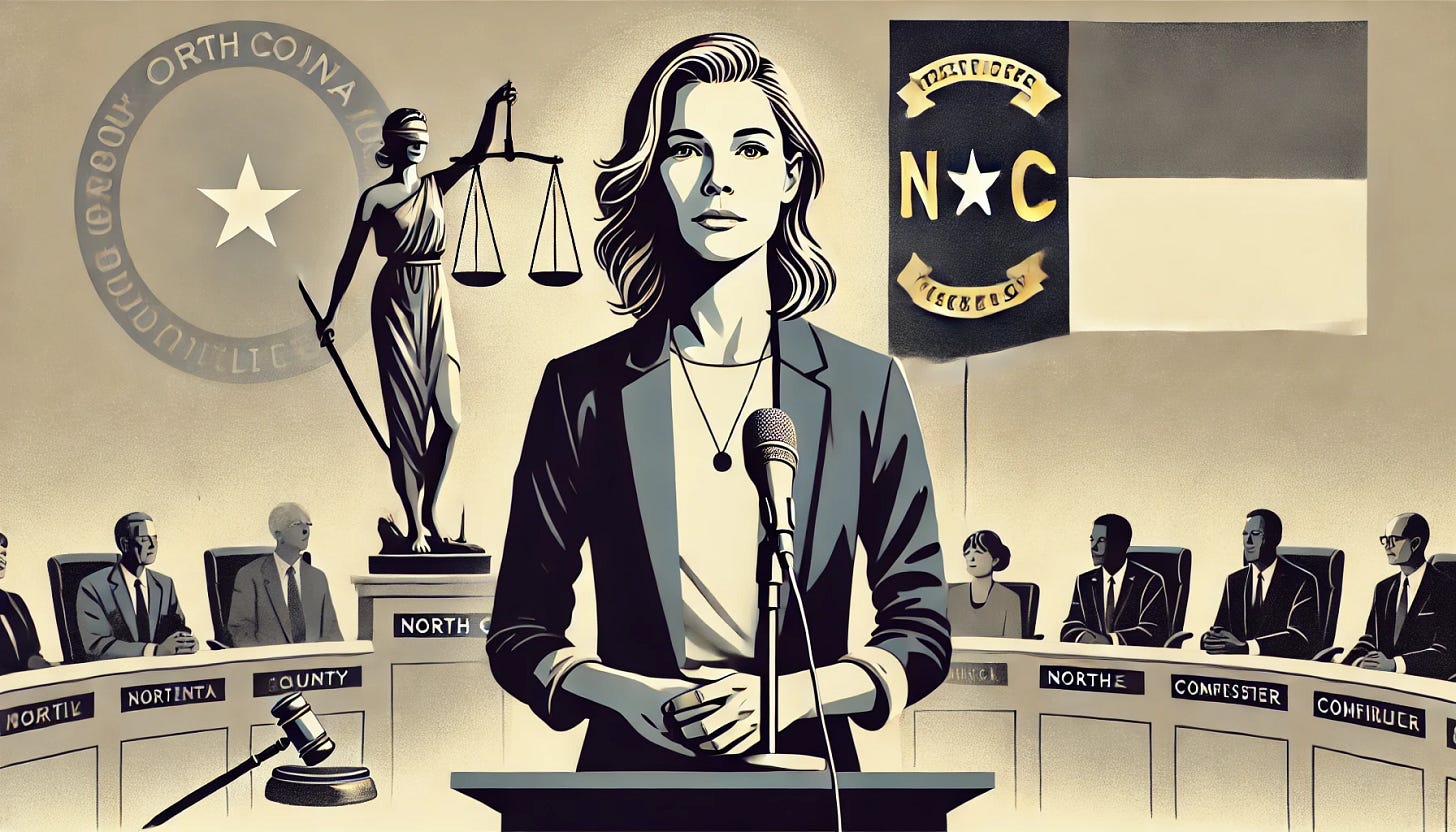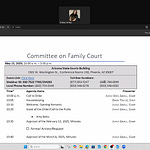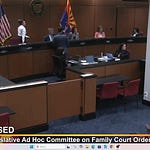Families DEMAND Reform; Voices for Justice
Core Themes Identified:
1. Unlawful Child Removal
Numerous families accused DSS of removing children without valid legal justification, frequently citing situations where no abuse or neglect had been substantiated.
Parents and grandparents stated that children were taken without due process, without clear explanation, and without recourse to challenge removals.
Protective custody was described by multiple speakers as a misused term that functions to enable state-sanctioned family separation.
2. Judicial Overreach & Lack of Accountability
The use of gag orders, gatekeeper orders, and no-contact orders was heavily criticized as tools used to silence parents and survivors.
Several speakers alleged that judicial immunity enables misconduct, and that the North Carolina State Bar fails to hold attorneys and judges accountable for ethical violations.
Calls were made for the establishment of a survivor-led review board and an audit of DSS and family court practices.
3. Violation of Constitutional and Civil Rights
Speakers highlighted violations of:
First Amendment rights (free speech, religious freedom)
Fourth Amendment rights (unlawful search and seizure)
Parental rights under the 14th Amendment
Specific examples included parents being denied religious freedom in medical decisions (e.g., vaccine refusal), the right to a jury trial, and being presumed guilty without evidence.
4. Concerns from Veterans and Families with Vulnerable Dependents
One veteran described his granddaughter's removal and his child’s death as consequences of systemic failures to recognize federal entitlements for helpless children.
He and others alleged that county leadership misrepresented federal law and denied services protected under VA classification.
5. Corruption and Systemic Exploitation
DSS and family courts were repeatedly characterized as profit-driven, politically protected, and functioning in a manner consistent with racketeering (RICO) behavior.
Community members described trauma inflicted on children and families by what they called state-funded child trafficking under the guise of protective services.
NOTICE OF CONSTITUTIONAL PRESERVATION AND LEGAL INTENT
In accordance with our rights under the U.S. Constitution and as part of our protected public interest advocacy, Aidileys affirms our reliance on the constitutional standards and judicial precedents outlined in Executive Order 14219.
The Executive Order, issued by President Donald J. Trump on February 25th, 2025, and then his Memorandum, Repealing the unlawful regulations which was issued, April 9th, 2025 directs the repeal of unlawful agency regulations and reaffirms the supremacy of due process, jury trial rights, and parental liberty under recent U.S. Supreme Court rulings.
By referencing this order, we formally preserve our legal right to invoke it in current and future actions—including potential litigation to challenge unconstitutional family court and/or child welfare practices. “Violations are not just procedural errors—but federally recognized constitutional harms.” Review the Executive Order here:
A Legal and Moral Obligation to Respond to Public Testimony Alleging Constitutional Violations
I, Amy of Aidileys, submit this memorandum to formally state that the issues raised during public comment, written communication, and ongoing public advocacy efforts are not anecdotal—they are direct allegations of constitutional violations, systemic misconduct, and state-enabled harm to vulnerable families. When these issues are brought forward in a public forum, government officials are not only morally responsible to respond—they are legally bound to do so.
I. Protected Speech & Right to Petition
Under the First Amendment of the U.S. Constitution, I—and every citizen—have the right to:
Speak publicly without retaliation
Petition government for redress of grievances
Criticize government systems and actors
Request action, redress, or reform
Any suppression, retaliation, or failure to acknowledge these rights constitutes a violation of constitutional protections.
II. Due Process & Government Accountability
Citizens have raised legitimate concerns regarding:
Judicial misconduct and bias
Denial of due process
Retaliatory gatekeeper, gag, and/or no-contact orders
Misuse of DSS power and child welfare funding
Lack of oversight in the enforcement of Violence Against Women Act (VAWA) programs
When a public body hears allegations of constitutional violations, it must:
Record and document the concerns
Forward or escalate complaints to judicial, ethical, or legislative oversight
Ensure no parties involved in the alleged abuse participate in the suppression of these complaints
III. Fiduciary and Ethical Responsibility
All elected officials swear an oath to uphold the Constitution. That duty includes protecting the public from state-enabled harm. Turning away public pleas for help—particularly when supported by data, documents, and personal testimony—reflects a failure to perform the core functions of public office.
IV. The Obligation to Respond to Public Demands
The requests made by Aidileys and survivor families are not abstract. They include:
Ending judicial immunity for judges who violate rights
Creating independent oversight commissions/boards
Auditing DSS and VAWA-funded programs
Reallocating resources away from harmful bureaucracies and toward victim support
Ending gag and gatekeeper orders used to silence survivors
These are reasonable, constitutional, and supported by public evidence—including the most recent tragedies outside the Kannapolis DSS building.
V. Legal Exposure for Inaction
When credible allegations of constitutional abuse are ignored or buried:
Counties and officials may be held liable under 42 U.S.C. §1983
Failure to address known misconduct results in federal civil rights litigation
Retaliation against whistleblowers violate state and federal whistleblower protection laws
Conclusion: Hear Us, or Be Held Legally Accountable
This is not simply a policy disagreement. This is a human rights crisis. I do not bring these concerns lightly, and I do not bring them alone. I represent families who have suffered, children who have been silenced including through murder, and parents who are being punished for seeking help.
Everyone watching this video. Everyone reading this. North Carolina, Cabarrus County Manager and Commissioners. You now hold this knowledge. Silence moving forward is complicity.
We are no longer asking for permission. We are demanding accountability.














Share this post